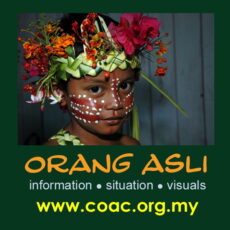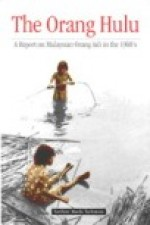by NARIFUMI MAEDA TACHIMOTO
edited by A. Baer
104 + xiv pp., 29 plates, 7 maps
15cm x 22.5cm, soft cover
Published 2001
ISBN 983-40042-1-4
Price: RM 15.00
Chapters:
Orang Asli in Malaya
Settlements of the Orang Hulu
Contexts of the Orang Hulu’s Situation
Subsistence within the Moral Order
Economic Activities of the Technical Order
Accumulation of Wealth
Household and Kinship
Integration and Conflict in and among Hamlets
Subordinate Relations with the Outside World
The Orang Hulu of Johor, sometimes referred to as Jakun, are a major ethnic group of the Orang Asli (“original people”) of Peninsular Malaysia. Despite their demographic strength, this is the first book that focuses on this people.
As an historical report, the book offers an ethnographic description of the Orang Hulu as they existed in the 1960s. It describes the mediated type of social and economic change occurring among the Orang Hulu then when they had already become obliged to work for cash incomes. The author also presents a further look at the process of adaptation to a cash economy in terms of moral versus technical exchanges in the Orang Hulu life context. He also describes the structure of subordination among the Orang Hulu and discusses hamlet cohesiveness, in comparison with that of the Malay.
This volume ably introduces the indigenous Orang Hulu to a broad audience. Just as importantly, the book also serves to provide the Orang Hulu themselves with a record of one part of their cultural history.
At the time of publication, Prof. Narifumi Maeda Tachimoto was Director of the Center for Southeast Asian Studies, Kyoto University, Japan.

